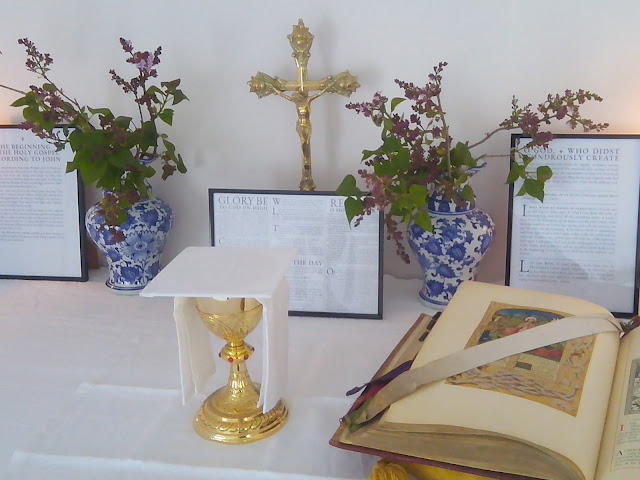Anyone interested in country house literature as a genre will probably be a fan of the Anglo-Irish writer Elizabeth Bowen's The Last September and Bowen's Court. Those of us who are motivated to take on a very old building in the country instinctively want to read about how others have also battled with decay, draughts and damp while managing to maintain a civilised way of living... except, of course, that sadly in Elizabeth Bowen's case the struggle naught availed, and she ultimately gave up, selling her ancestral home, Bowen's Court in County Cork, and retiring to a most unlikely and undistinguished-looking suburban house in South-East England. Presumably she finally got to the point where the lure of fitted carpets and central heating was just too strong to resist.
Above is the famous photo of Iris Murdoch on her best behaviour among Elizabeth Bowen's dinner guests at Bowens Court.
There are two good books detailing Elizabeth Bowen's love life. Married to a discreetly gay husband, after ten years of marital life during which she remained virgo intacta, she not surprisingly embarked on two long affairs, first with Oxford don Humphrey House and then with the Canadian diplomat Charles Ritchie.
In November 1957, Bowen was driving up from the south to the north of France, passing through Burgundy, and it inspired her to write romantically to her lover Charles Ritchie: "Oh the beauty of those towns, first in Provence, then Burgundy. The little Burgundy towns in the sunshine looked like plates of fruit, peaches and yellow plums, all set around with their alleys of yellowing trees, and with bursting scarlet woods in the distance... I wondered why you and I could not together pull out from the world's battle and live en retraite in a small kind house in a small kind town in Burgundy. That is a part of France one could truly love."
(Letter quoted in Love's Civil War)








.png)
